Imagine getting into your car and hitting the road, but as you turn the key or push the ignition button, you hear an odd knocking sound. It sounds like the engine in your automobile is hammering out an eerie pattern. You’re not alone in experiencing this strange event, so don’t worry. Known as “engine knock on startup then goes away,” this perplexing sound frequently occurs in numerous vehicles.
But why does this unnerving noise go away when your car warms up, and what exactly creates it? In this essay, we’ll take a basic look at the realm of engine knock starters. We’ll examine the causes, clarify why it disappears, and provide some tips on how to make sure your car starts smoothly and silently every time. So let’s set out on this adventure to understand engine knock when starting!
Table of Contents
Engine Knock On Startup: What Does It Mean?
When an engine knocks during startup, it sounds like your car’s engine is clearing its throat. It’s that strange tapping or knocking sound you experience briefly after starting your car. Think of it as your engine telling you, “Hey, I need a moment to wake up!” However, why does this occur? To make your car run, the engine undergoes a series of little explosions when you turn the key.
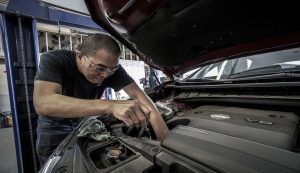
You hear the knock when one of these explosions doesn’t go exactly as it should. Small fuel and air explosions that aren’t perfectly timed are what trigger it. The good news is that as your engine warms up and becomes more synchronized, this knocking typically stops. However, knowing why it occurs and how to avoid it will help you start your car smoothly and silently like a pro.
What Are The Causes Of Engine Knock On Startup?
Your car may receive an uncomfortable wake-up call when the engine knocks during startup. You may fix the problem and ensure a smooth start for your car by being aware of the typical reasons for this noise. Let’s examine some of the most common offenders:
1. Piston Slap:-
When your car is old and gets to 180,000 miles, there’s a high tendency for piston slap issues to surface. Piston slap is the loosening up of the piston from the cylinder wall when they are no longer adequately fitted together as they should be. Age is a factor in this because intolerance will increase as the component wears off.
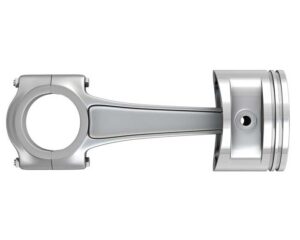
This can alter the movement of the piston; instead of moving up and down, it will start moving in a rocky or shaky way. This problem may result from the design flaw and not tear and wear in some cases.
2. Sticky Engine Lifter:-
Your car engine may knock on startup because of these lifters. In addition, there’s a loud ticking sound distinct from other engine knocks, which is usually caused by a sticky engine lifter. The most common cause of sticky valve lifters is poor oil lubrication. Hence, the sticky engine lifter problem will be solved if proper and good oil lubricant is used.
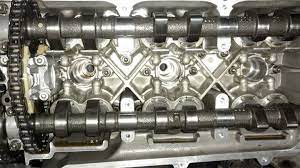
When your car has covered hundreds of miles, it may develop such a problem because the engine oil cannot control such gaps, leading to poor lubrication and mechanical fault that comes with an awkward sound.
3. Worn Engine Parts:-
Engine knock-on startup then goes away can happen because of worn-out engine parts such as alternators, steering pumps, and water pumps. The car will function correctly until a particular part fails, at which point the check engine light will illuminate. You will experience a rhythmical and harmonic noise from the worn engine part, but the noise will gradually die off as soon as your car starts up.
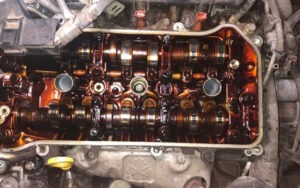
This is because the engine oil is circulating through the parts when the car is warmed up. The heat will help expand the bearing, and there will be proper operation of the car irrespective of the wear.
4. Bearing Worn-Out:-
The function of a bearing is to help rotational parts of the engine move properly. Without it, the engine won’t be able to work correctly. For example, the engine will start producing sounds if it gets worn out, causing the engine to knock on startup. Engine slaps can also happen as a result of worn-out bearings.
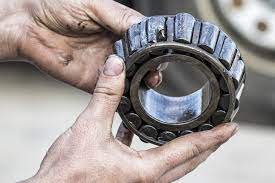
The main crankshaft bearing is the most affected, causing a disconnection between the crankshaft and other engine parts. When the crankshaft is heated, the issue disappears and resurfaces when the temperature drops.
5. Oil Drain-Back:-
When your engine block drains oil through the check valve. If your check valve is faulty, the engine block won’t be properly sealed, allowing oil to leak from the oil filter. In this case, the oil pump is forced to pump oil into sensitive parts that are not designed to handle oil.
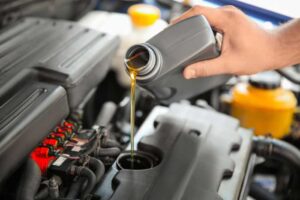
As a result, you will keep hearing the knocking sound for a minute till the oil is pushed into the engine parts and thoroughly lubricated the parts. Though this problem will disappear after the engine is warmed up, the sound issue will still surface on startup.
6. Carbon Buildup On Engine:-
As your car starts getting old, it starts building up carbon in the engine. This is because the engine no longer performs complete combustion, producing black soot. This buildup will cause the hardening of the engine parts, which is very unhealthy for your engine.
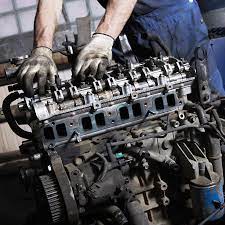
How To Fix The Engine Knock On Startup Issue?
Engine knock-on startup is a simple problem to solve. You can stop that annoying knocking sound when you turn the key with a few easy fixes. Let’s look at some quick fixes:
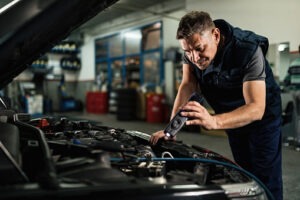
Step 1:- Keep An Eye Out For Wear And Tear On The Cylinder And Piston
Firstly, locate the engine by opening the engine bay. Get a mechanical toolbox and also get tools like screwdrivers and wrenches. Then start dismantling the engine to gain access to the cylinders and pistons. Take a very close look at the piston and walls of the cylinder. Keep an eye out for wear and tear on the cylinder and piston.
If you notice the design is flawed too much and can’t be fixed by replacing the faulty component, you either carry out a piston-cylinder rebuild or call an expert to do it. Know that it is an expensive procedure and best done by an expert.
Step 2:- Examine The Engine Lifters
Unlock and open the engine bay, then locate and examine the engine lifters with your eyes. Take note of how long it takes for the engine knocks on startup to fade away because that will help ascertain why the engine lifters are faulty.
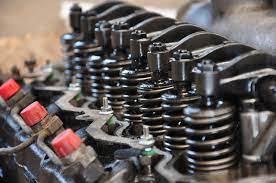
Step 3:- Examine The Components
Examine the component for signs of wear and tear because the part may have been affected by the prolonged noise. Examine components like valve lifters, springs, and pushrods. Ensure that they are correctly fixed because they can cause sticky valve lifters if they have poor attachment and tolerances.
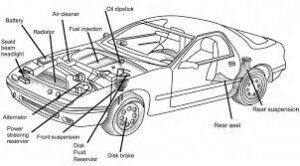
Step 4:- Look Out For Proper Oil Viscosity
After examining the above and everything is in good condition, the problem is from the engine oil. Get proper engine oil with the right properties and viscosity suitable for your vehicle. Examine the parts and see if there’s poor lubrication and if the lubrication level is low because the engine part’s wear could result from your car leaking oil when parked. Get a replacement for the worn-out parts and make sure there is good and enough engine part lubrication.
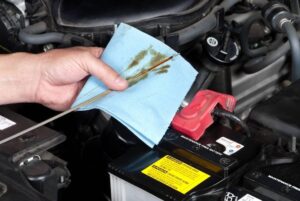
Step 5:- Examine The Bearings And Crankshaft
Open the engine bay and examine the bearing and crankshaft. Inspect the bearings for wear and crankshaft tolerances for deviations. You also need to check the oil conditions of the bearing and ensure that it’s okay because poor bearing lubrication can lead to bearing failure.
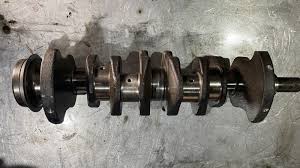
Step 6:- Check The Oil Filter
Check the oil filter and examine the check valve to ensure it is securely fitted. When you notice oil on sensitive parts where oil shouldn’t be, it’s a clear sign of an oil drain back problem. Buy and replace the oil filter to protect the oil in the engine block. Ensure that you purchase the original oil filter with quality check valves.
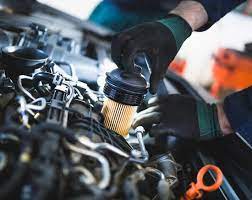
How Much Does It Costs To Fix This Issue?
Depending on the root of the problem, the cost to fix an engine knock during a starter can be very different. Spark plug repair or minor issues like using poor fuel might run anything from $100 to $300. It could cost between $500 and $1,500 or more if the issue is more complicated, such as fixing severe carbon buildup or timing problems. A mechanic must be consulted for an accurate diagnostic and cost estimate. Keep in mind that fast maintenance and problem-solving can help you avoid needing to make larger, more expensive repairs in the future.
How To Prevent Engine Knock-On Startup Issues?
As earlier stated, this issue can be caused by a couple of reasons, such as wear and tear of engine components or piston slap. When you notice such symptoms, please ensure to visit your mechanic for proper diagnosis because if you allow the problem to persist, you are signing in for a bigger problem. The earlier you resolve the issue, the better.
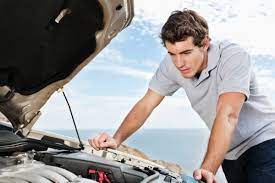
Below are suggestions on how to prevent your car from experiencing engine knock-on startup issues.
1. Invest In High-Quality Oil:-
Good quality engine oil can reduce engine wear and tear. Each time you start your car, it will get hot quickly. It means the engine parts broaden fast, causing friction among metal parts. This can damage the engine if lubrication is not ensured properly.

The oil with high-quality assists in improving the engine performance by decreasing heat generation and lengthening the life of engine parts. Moreover, it can clean up wear particles, remove carbon deposits from engine valves and pistons, and stop engine noise on startup.
2. Get Your Engines Tuned Regularly:-
Taking your car to an appropriate engine tuning service helps avoid engine knock-on startup. They ensure that the engine is performing smoothly without any obstacles such as carbon build-up or misfiring. Regular checkups for your car can enhance the overall performance by making improvements, for example, adjusting the time of spark plugs, setting the air/fuel ratio, etc.
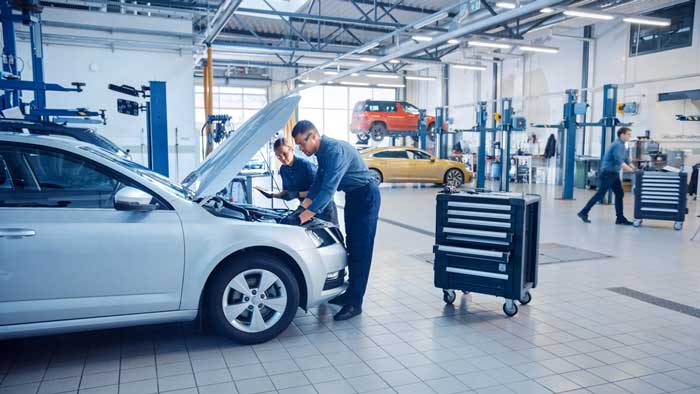
3. Change Filter Constantly:-
Dirty and old engine oil can cause sludge build-up, which impairs the engine’s performance. Therefore, changing the oil filter regularly is a must to ascertain the engine oil remains pure and engine components are properly lubricated.

4. Never Ignore Check Engine Light:-
Another method to prevent a knocking sound when starting your car is to notice any warning signs of the engine light. Whether it is a normal check engine light or sputtering, ignoring these symptoms can bring many problems or engine damage.
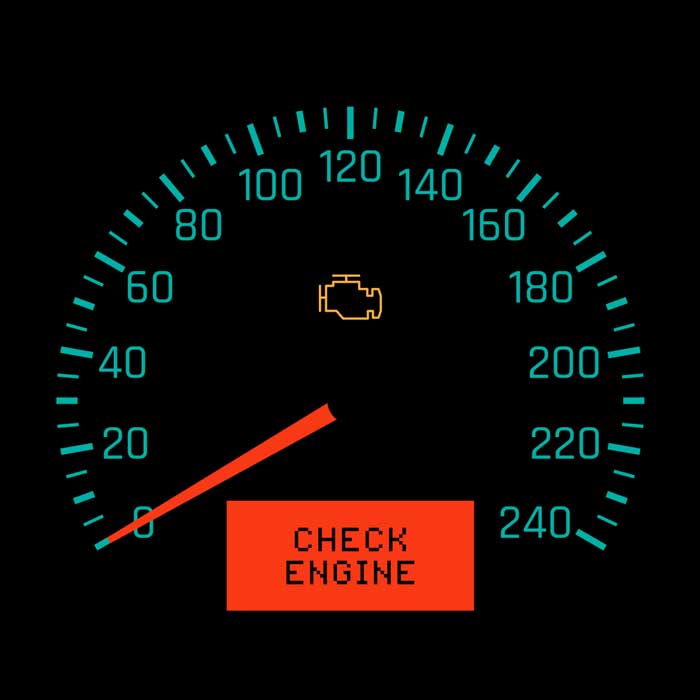
5. Avoid Driving Rough:-
You should limit the time driving aggressively if you want to prevent engine wear and tear. This type of driving involves speeding up or revving your car when you are in traffic jams. As constant high speeds equal faster wear, one of the main factors causing piston slap on startup and damage to other engine components.
Frequently Asked Questions:-
Let us now see some frequently asked questions such as does a loud knock when starting the car disappear? how much does it cost to repair the engine knock? etc.
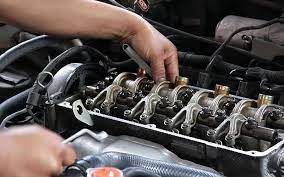
1. Does Loud Knock When Starting The Car Disappear?
Yes. When the engine is warm enough, this knocking sound will stop. However, even after the noise has decreased, the engine has been harmed, more or less. Due to this, it is important to ask the mechanic’s opinion if you hear any strange noise from your car.
2. How Long Will Your Car Last With Rod Knocks?
Six months is the longest period that a rod-knocking engine can endure before it blows up. However, using an engine with a rod knock is not good because it can cause more damage and shorten its lifespan.
3. Is Engine Knock Worth Fixing?
Faulty or damaged engine parts cause the engine to knock; therefore, replacing it with a new one can solve the problem. However, the replacement cost can be pretty expensive.
4. Can A Bad Oil Pump Cause Knocking?
Oil is essential for the proper running of your car engine. When your engine does not get enough oil, it can create problems of which engine knocking is one.
Conclusion:
Engine knock-on startup then goes away can be unsettling, but with the proper technique, it’s a problem that is frequently fixable. Taking proactive measures to prevent and resolve engine knock will help your automobile run smoothly and silently, whether it’s through the use of high-quality fuel, reducing carbon buildup, or maintaining appropriate ignition timing. Maintaining your car in top condition and getting expert assistance when necessary is crucial for making sure each start is as easy as possible.
